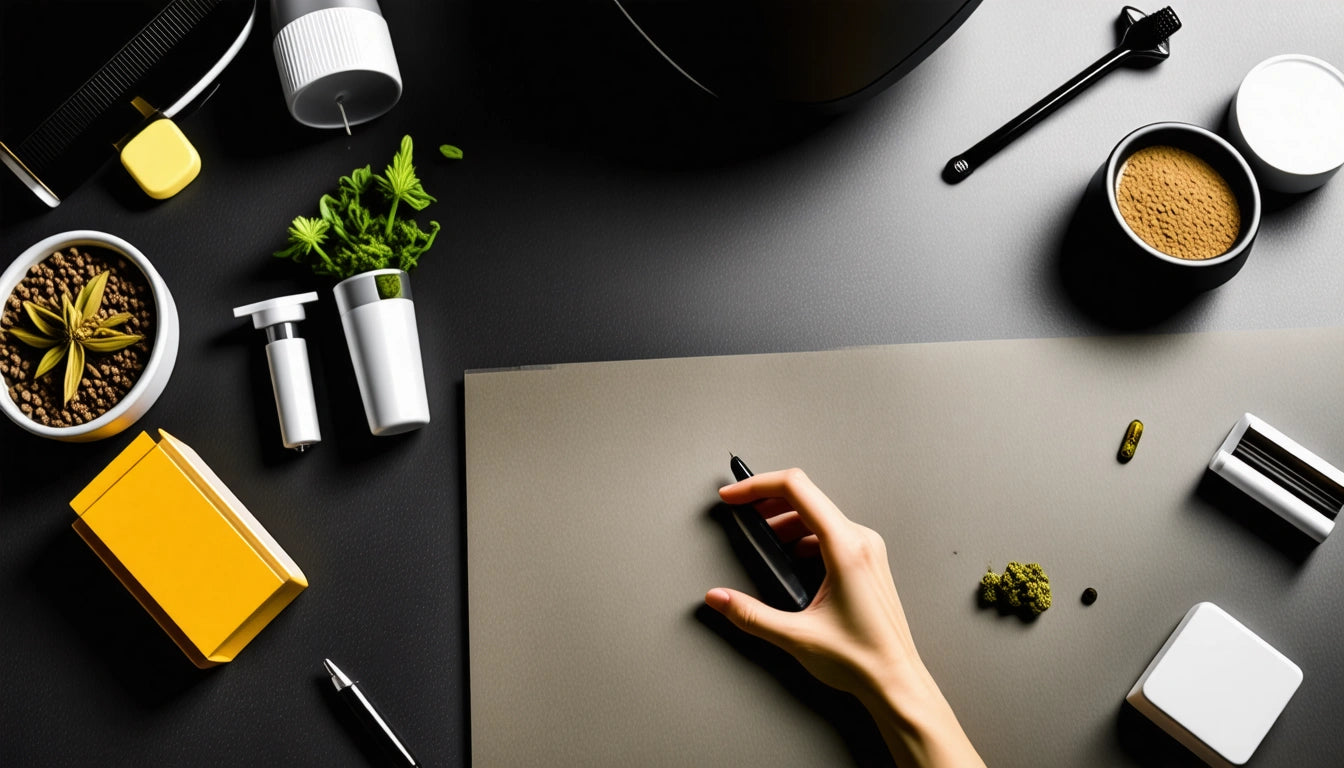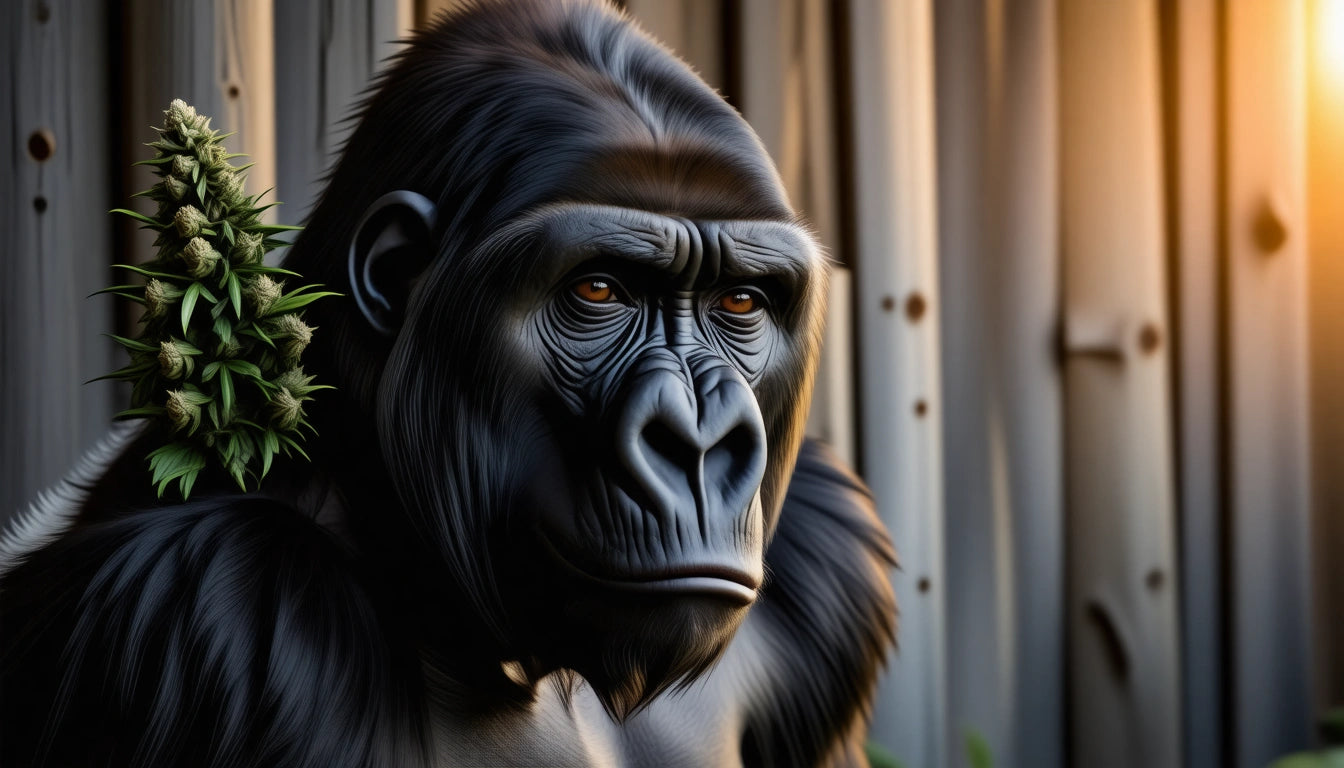Table of Contents
How Does Weed Affect Mood, Personality, and Perception?
Cannabis affects individuals differently, influencing mood, personality, and perception through complex interactions with the brain's endocannabinoid system. Understanding these effects helps consumers make informed decisions about consumption. This guide explores common questions about how cannabis influences mental and emotional states.
Cannabis Effects on Mood and Happiness
Many users report that cannabis produces feelings of euphoria, relaxation, and happiness. This occurs primarily through THC's interaction with dopamine pathways in the brain's reward system. But does weed truly make you happier?
Short-term effects often include elevated mood and reduced anxiety. The cannabinoids in marijuana bind to receptors that regulate neurotransmitters associated with pleasure and stress reduction. For many users, this creates a temporary sense of well-being and contentment.
However, the relationship between cannabis and happiness isn't straightforward. As outlined in this comprehensive overview of marijuana's effects, the experience varies based on:
- Strain type and cannabinoid profile
- Consumption method
- Dosage
- Individual biochemistry
- Setting and mindset
Sativa strains typically produce more uplifting, energetic effects that may enhance happiness for many users. Sativa's influence on emotions tends toward euphoria and sociability, while indica varieties often create more sedative, physically relaxing effects.
Does Cannabis Change Personality?
The question "does weed change your personality" requires nuanced consideration. Research suggests several possibilities:
Temporary Personality Shifts
During intoxication, cannabis may temporarily alter personality traits. Users commonly report:
- Increased openness to experience
- Enhanced introspection
- Reduced inhibition
- Changes in sociability (either increased or decreased)
These changes typically resolve as the effects wear off. When preparing cannabis products for consistent experiences, many producers use precision filling equipment for accurate dosing to help users better predict and manage these temporary effects.
Long-Term Considerations
Research on long-term personality changes from cannabis use shows mixed results. Some studies suggest heavy, prolonged use during adolescence might influence developing personality structures, while others find minimal lasting impact in adult users.
The concern that cannabis might "make you crazy" is largely unfounded for most users. However, cannabis can impact mood regulation in some individuals, particularly those with pre-existing mental health vulnerabilities.
Cannabis, Perception, and Creativity
Many users report enhanced sensory perception while using cannabis. This altered perception can manifest as:
- Heightened appreciation of music, art, and food
- Enhanced pattern recognition
- Altered time perception
- Increased sensory sensitivity
The question "does weed make you see things" typically refers to hallucinations, which are rare with cannabis alone. More commonly, users experience enhanced visual processing or mild visual distortions rather than true hallucinations.
Cannabis and Creativity
Many artists, musicians, and writers report that cannabis enhances their creativity. The question "does weed make you more creative" has been explored in several studies with interesting findings:
- Cannabis may reduce cognitive filtering, allowing more unusual associations
- It can enhance divergent thinking (generating multiple solutions)
- Users often report novel perspectives and ideas
However, while subjective feelings of creativity often increase, objective measures of creative output show mixed results. The relationship appears highly individualized, with some users experiencing enhanced creativity while others may find their focus and execution impaired.
Cannabis and Negative Thought Patterns
For some users, cannabis can trigger anxiety, paranoia, or negative thought spirals. The question "does weed make you think negatively" has no universal answer, as outcomes depend on numerous factors:
- Individual susceptibility to anxiety
- THC concentration and CBD ratio
- Consumption environment
- Tolerance and experience level
Higher THC concentrations are more likely to induce anxiety or paranoia, particularly in inexperienced users or those with anxiety predispositions. CBD may counterbalance these effects, offering a more balanced experience.
Understanding how cannabis affects the mind helps users recognize when negative thought patterns might emerge and how to manage them effectively.
Individual Factors Influencing Cannabis Effects
The variability in cannabis responses can be attributed to several factors:
Genetic Factors
Genetic differences in endocannabinoid systems and metabolism significantly influence how individuals respond to cannabis. Some people experience minimal effects due to genetic variations affecting cannabinoid receptor density or function.
Tolerance and Experience
Regular users develop tolerance to many cannabis effects, potentially experiencing less pronounced mood or perception changes compared to occasional users.
Mental Health Considerations
Pre-existing mental health conditions can significantly alter cannabis responses. Individuals with anxiety disorders, depression, or psychosis risk may experience amplified negative effects.
Cognitive function is another consideration, with some research exploring whether cannabis affects intelligence or cognitive performance.
Keys to Responsible Cannabis Consumption
Understanding how cannabis might affect your mood, personality, and perception allows for more informed consumption choices:
- Start with low doses and gradually increase if needed
- Choose appropriate strains based on desired effects
- Consider the CBD:THC ratio for balanced experiences
- Create comfortable, safe consumption environments
- Be mindful of set and setting
- Avoid use if you have concerning mental health symptoms
By approaching cannabis with knowledge and mindfulness, users can maximize potential benefits while minimizing risks to mood stability and mental wellbeing. Remember that individual responses vary widely, making personal awareness and responsibility essential components of cannabis use.











Leave a comment
All comments are moderated before being published.
This site is protected by hCaptcha and the hCaptcha Privacy Policy and Terms of Service apply.